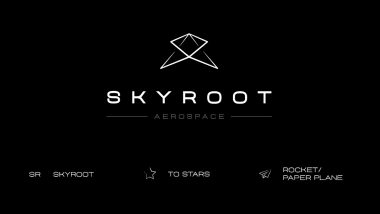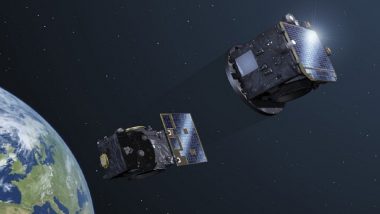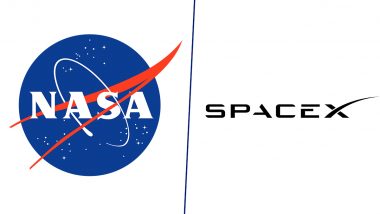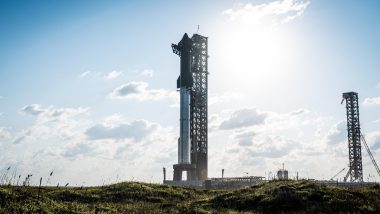New Delhi, May 19: Space-sector start-up Skyroot Aerospace has successfully conducted the full-duration test-firing of the third stage of the Vikram-1 rocket, India's first privately built satellite launch vehicle.
Named 'Kalam-100' after former President late A P J Abdul Kalam, the third stage of Vikram-1 produces a peak vacuum thrust of 100 kN (or ~10Tons) and has a burn time of 108 seconds. Space Rocket Startup Skyroot Aerospace Unveils Cryogenic Engine Dhawan-1 on Satish Dhawan’s Centenary.
"The test-firing was conducted on May 5 at Nagpur," Pawan Kumar Chandana, co-founder and CEO of Skyroot Aerospace, told PTI. The rocket stage is built with high-strength Carbon fiber structure, solid fuel, EPDM thermal protection system, and carbon ablative nozzle.
"It is a highly reliable stage with no moving parts and high level of automation in manufacturing," he said. Chandana said the full duration stage level testing is a major milestone for the development of our flagship orbital vehicle Vikram-1.
"The stage has delivered excellent performance and this success gives great confidence for our other rocket stages planned to be tested soon," he said. Skyroot co-founder Naga Bharath Daka said Kalam-100 was the best in class rocket stage of its size, with record propellant loading and firing duration.
It uses all carbon composite structure for delivering best performance, he said. "This is the largest rocket stage ever designed, manufactured, and tested completely in the Indian private sector. We are proud to be a part of this achievement by supporting the propellant processing and static testing at our world class facilities in Nagpur," said Manish Nuwal, MD and CEO of Solar Industries India Ltd.
"State-of-the-art technology like carbon composite case, high propellant volumetric loading up to 94 per cent, lighter EPDM based thermal protection system, and submerged nozzle have been validated through the successful static test. A good match of test results with our design predictions in the very first attempt, is a testament to our team's capabilities," said Eswaran VG, a veteran Indian rocket scientist and Vice President of Propulsion at Skyroot.
(This is an unedited and auto-generated story from Syndicated News feed, LatestLY Staff may not have modified or edited the content body)













 Quickly
Quickly




















